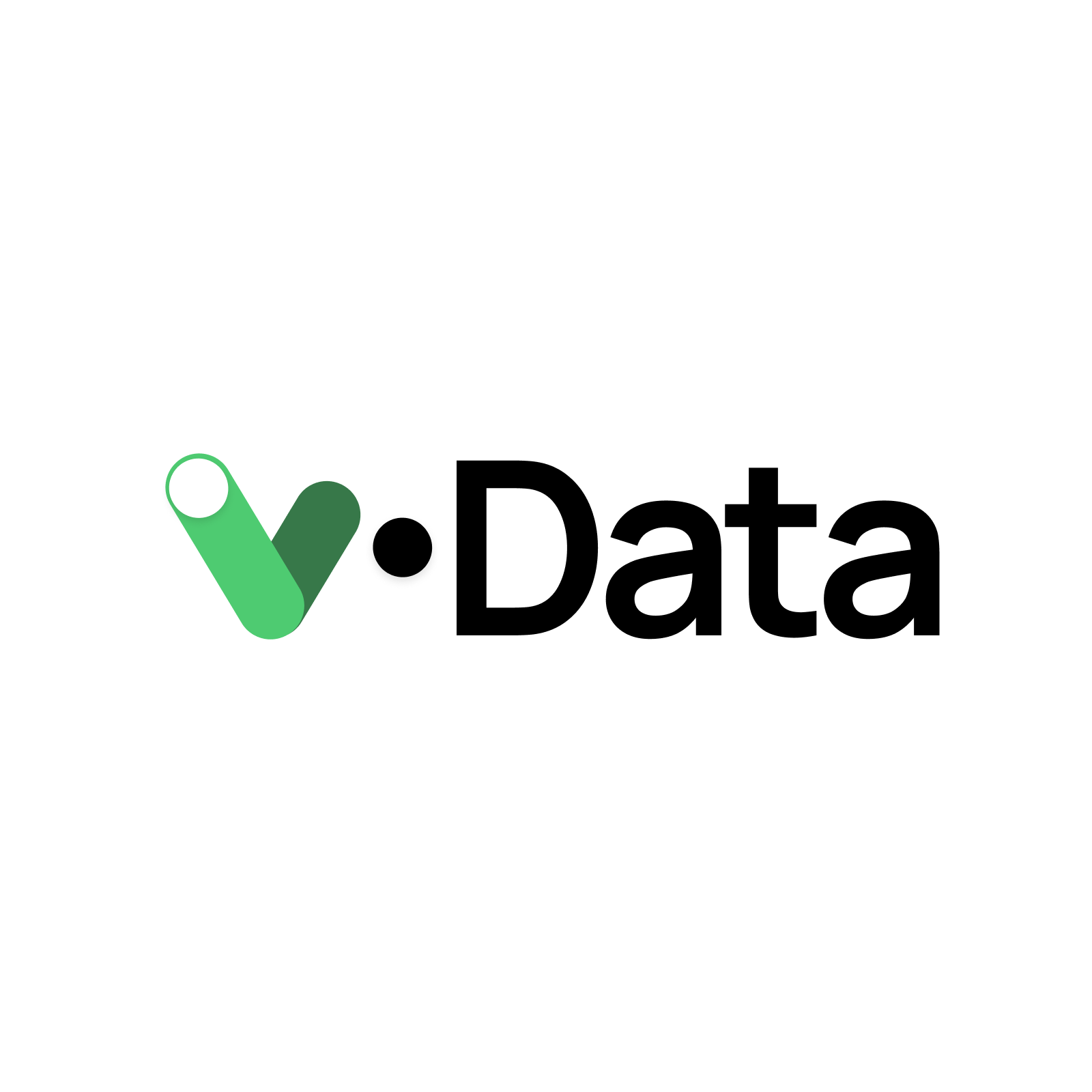V-Data final conference
Work packages

Final conference
The final conference of the project “V-Data - The value of digital data: enhancing citizens’ awareness and voice about surveillance capitalism”, funded by Fondazione Cariplo, will take place 7-8 September 2023 at the University of Pavia (https://web-en.unipv.it/about-us/), Department of Political and Social Sciences, Italy. The event will comprise panel presentations and one keynote session hosting the internationally renowned scholar Stefania Milan (https://www.stefaniamilan.net/about-me/). A maximum of 25 papers will be selected for presentation. Preference will be given to speakers who plan to attend the conference in person, but a small number of remote presentations (no more than one per panel) may be included in the programme. The organising committee is exploring options to publish a special issue in a peer review journal associated with this call for contributions.
Call for contributions
DEADLINE EXTENDED: the deadline for sending your contributions has been extended until 12 May 2023! We invite researchers who are active in the field of surveillance capitalism, data justice, algorithmic studies, data ethics, Science and Technology Studies (STS), digital and computational methods, digital labour, media consumption and attitudes, critical consumer studies, platform studies (and many more) to submit proposals for paper presentations. Please submit an abstract (max. 300 words) to the event organisers by sending it via email to vdataresearch@gmail.com by 12 May 2023.
The conference theme is The value of digital data: advancing empirical research on surveillance capitalism. We encourage proposals from researchers with a variety of backgrounds, including academic research, activism, marketing research, journalists, and government social research. The following are examples of topics that are of particular interest:
- Public opinion and awareness about processes of data extraction, appropriation, and valorisation.
- Emic conceptions of data value: surveillance capitalism imaginaries across socio-economic groups, cultures, ethnicities, age cohorts, and geographies.
- Consumer practices of resistance, compliance and negotiation towards vocal assistants, targeted advertising, algorithmic systems of recommendation, AI devices (etc.).
- The nexus between Covid-19 pandemic and surveillance capitalism.
- Digital labour exploitation in surveillance capitalism (or surreptitious strategies of data appropriation).
- Working in the data factory (e.g., data cleaning, moderation, data entry, etc.).
- Innovative methods for studying surveillance capitalism.
- Digital and computational methods for studying surveillance capitalism (or how to surveille the surveillants).
- Survey methods for studying surveillance capitalism.
- Making surveillance capitalism visible through data visualisation (and other visual aids).
- Arts and surveillance capitalism imaginaries.
- Utopian and dystopian imaginaries of surveillance capitalism.
- Data activism and surveillance capitalism.
- Surveillance capitalism in the Global South.
- Big data and finance.
- Discrimination, inequalities and injustice related to processes of surveillance capitalism.
- How does the concept of data value change according to different stakeholders (consumers, marketers, brands, analysts, etc.) as well as market segments (e.g. automotive, food, fashion, etc.)?
- Big data consumer profiling and implication on identity and subjectivity.
- How digital affordances shape imaginaries of and practices related to surveillance capitalism.
- The platformization of consumer imagination and practices (or how platforms standardise consumer behaviours to make them more predictable and data-ready).
- Living with the hyper-nudging.
Conference venue
The conference will take place at the University of Pavia (https://web-en.unipv.it/about-us/), Department of Political and Social Sciences, Italy. Pavia is located 30 km south of Milan, to which is connected by trains every 30 minutes.
Important dates
Abstracts are due by 12 May 2023. These should include the author(s) name and position, a short title, and a clear indication of whether they plan to attend the conference in person or remotely. Acceptance notices will be given by 31 May 2023.
Fees and Accommodation
The event fee is 80 Euros. Fee includes: a) welcome package; b) daily lunches and coffee break; c) social dinner. The fee does not include accommodation. Anyway, for those interested the Department provides up to 15 single rooms at a convenient rate of euros 49 by the University dorms. Participants who are interested in staying at the University dorms must mention it in their submission. Priority in the allocation of rooms will be given to early-career scholars and according to submission date.
Organising committee
Alessandro Caliandro, Flavio Ceravolo, Guido Legnante, Samantha Conte, Antonella Orologiaio, Susanna Sassi (Università di Pavia), Emma Garavaglia (Politecnico di Milano), Alessandra Gaia (Università degli Studi di Milano-Bicocca), Dario Pizzul (Università Cattolica del Sacro Cuore).
Conference programme
Thursday, September 7th
- 10:00 AM: Registration opens
- 11:00 AM - 12:00 PM: Welcome and openings
- 12:00 PM - 1:00 PM: Light Lunch
1:00 PM - 3:00 PM
Session 1 - Resistance & Countersurveillance (Aula B) - Chair: Veronica Moretti
- Lucio Pereira Mello: Battle for platform regulation in Brazil: mapping data as political strategy
- John Boy: Practical Rejections of Surveillance Capitalist Platforms and Their Directions
- Matteo Adamoli and Tiziana Piccioni: Practices of resistance in digital third spaces: critical aspects of the platformisation during the pandemic in high education
- Milana Pisarić: Digital Surveillance State vs. Digital Privacy Rights
Session 2 – Theory (Aula Grande) - Chair: Alessandro Caliandro
- Gianmarco Cristofari: A comparative historical account of value production inside digital platforms
- Adam Arvidsson: The Question of the Digital in the Anthropocene
- Dario Pizzul and Alessandro Caliandro: A systematic literature review of surveillance capitalism: towards an empirical research agenda
- Guido Anselmi: Yet another round of disruption: the imaginary of LLMs in social and legacy media
3:00 PM - 3:30 PM: Break
3:30 PM - 4:30 PM: Keynote Speech (Aula Grande) Stefania Milan (Professor of Critical Data Studies at the University of Amsterdam)
4:30 PM - 6:30 PM
Session 3 – Awareness (Aula B) - Chair: Marco Gui
- Martin Trans: Datafying groceries: consumers’ willingness to participate in loyalty programs
- Margherita Bordignon, Guido Legnante, Chiara Respi, Marco Gui and Dario Pizzul: The price is right: exploring the economic value of personal data among Italian citizens
- Riccardo Pronzato: The reproduction of hegemony in youth’s everyday platform engagements
- Chiara Respi, Marco Gui, Guido Legnante, Dario Pizzul, Tiziano Gerosa, Gaetano Scaduto and Miriam Serini: Privacy protection as an exception in the digital inequality framework (and why this is not good news)
Session 4 - Geographical contexts (Aula Grande) - Chair: Guido Legnante
- Salvatore Romano, Davide Beraldo and Ilir Rama: The Impact of TikTok Policies on Information Flows during Times of War: Evidence of ‘Splinternet’ and ‘Shadow-Promotion’ in Russia
- Susanna Sassi and Guido Legnante: How media and journalism represent surveillance capitalism in Italy
- Claudio Bellinzona: The future of smart cities in the context of surveillance capitalism. The case of Dubai
- Isabela Rosal Santos: The regulation of data brokers in Europe: solutions presented by the new regulations
7:30 PM: Social dinner “Horti” - Lungo Ticino Sforza, 46, 27100 Pavia
Friday, September 8th
9:00 AM - 11:00 AM
Session 5 – Activism (Aula B) - Chair: Alessandro Caliandro
- Alice di Leva, Emma Garavaglia and Annavittoria Sarli: Social injustice in surveillance capitalism: reflections on the Italian context
- Annika Richterich: Who values Data Minimalism? On Solidarity in Feminist Data Activism
- Peter Mechant, Sander Van Damme, Marteen de Mildt, Steven Dewaele, and Laurens Vandercruysse: Personal Data Stores and data cooperatives: a two-pronged, sociotechnical approach for data activism
- Michele Veneziano: Monitoring public administrations to fight surveillance capitalism: Practices and imaginaries of an Italian tech watchdog
Session 6 – Algorithms (Aula Grande) - Chair: Dario Pizzul
- Massimo Airoldi and Tiziano Bonini: Capturing habitus: how algorithms extract value from platformized culture
- Natalia Stanusch: Memeing Algorithmic Imaginaries: How Users Fight against and Comply with Recommendation Algorithms Using Data
- Davide Beraldo, Massimo Airoldi, Sander van Haperen and Stefania Milan: Algorithms as Cultural Objects: mapping algorithmic imaginaries on Twitter
- Luca Giuffrè: Algorithm Literacy at School: teenagers reasoning of algorithm-mediated experiences
11:00 AM - 11:30 AM: Coffee break
11:30 AM - 1:00 PM
Session 7 – Work and cultural production (Aula B) - Chair: Natalia Stanusch
- Alessandro Gandini, Marianna d’Ovidio and Ilir Rama: Community, cultural production and the pandemic
- Josephine West: Sex, Power and Surveillance Capitalism in the Multi-Billion Dollar Camming Sector
- Emma Garavaglia, Annavittoria Sarli and Francesco Diodati: Carework platforms in Italy: a qualitative research
Session 8 - Family & parenting (Aula Grande) - Chair: Alessandro Caliandro
- Julie Dereymaeker, Tom De Leyn and Ralf De Wolf: Datafied families and parental surveillance by default? Exploring parental care and surveillance in the construction of smart home technology
- Ribak Rivka and Gal Shayovitz: Surveillance Capitalism In Embryo
- Mathias Klang: Parental Panopticons and Everyday Resistance: Domestic Surveillance and young adults
A research project by:



Funded by:

Contact us:
Drop a message to alessandro.caliandro@unipv.it - twitter - facebook - researchgate